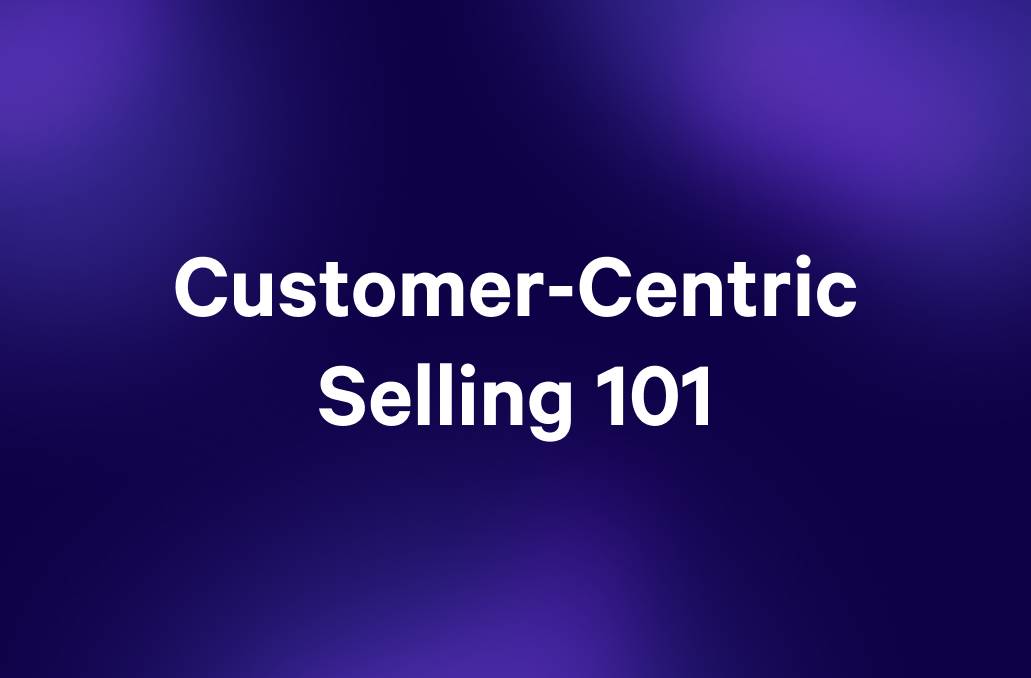Solution selling and consultative selling are like two sides of the same coin. While both aim to drive sales and satisfy clients, they approach this from different perspectives.
Solution selling focuses on identifying specific problems and offering tailored solutions, while consultative selling emphasizes understanding client needs and building lasting relationships. Both methods have their place, but knowing when to use each can make all the difference.
In this article, we take a closer look at these two popular sales methodologies. Providing clear scenarios for their application, we’ll arm you with all the info you need to make an informed decision for you and your sales process.
Key Takeaways
Solution Selling:
- Best suited for complex technical problems where specific solutions are required.
- Effective in industry-specific needs, such as healthcare or IT, where tailored products can address unique challenges.
Consultative Selling:
- Ideal for scenarios involving long-term contracts where building trust and rapport is essential.
- Perfect for complex sales processes involving multiple stakeholders (such as enterprise sales.)
Combining Both:
- A hybrid approach can address immediate challenges while fostering long-term client relationships.
- Using both allows for flexibility and adaptability, enhancing overall success.
What is solution selling?
Solution selling centers on identifying and addressing the specific problems a customer faces. Rather than pushing a product or service, you focus on how your offerings can solve the customer's challenges. This approach requires a deep understanding of your product's capabilities and how they align with the client's needs.
In solution selling, the salesperson acts as a problem solver, tailoring their pitch to highlight how their solution meets the client's specific requirements. This approach is particularly effective in complex sales environments where customers are looking for customized solutions rather than off-the-shelf products.
What is consultative selling?
Consultative selling, on the other hand, is all about building a relationship with the customer. It emphasizes a deep understanding of the customer's needs, challenges, and goals before proposing a solution. So, it is less about selling a product and more about offering expertise and guidance to help customers achieve their objectives. In the B2B customer experience, this is what 87% of buyers now expect.
Consultative sellers ask insightful questions, listen actively, and provide tailored recommendations based on the customer's unique situation. This approach fosters trust and loyalty, making it ideal for long-term B2B customer relationships.
The differences between solution selling and consultative selling
Understanding the differences between solution selling and consultative selling is crucial for applying the right approach in any scenario. Both methodologies have their unique strengths, but they cater to different aspects of the sales process.
Solution selling:
- Focuses on identifying specific problems and offering tailored solutions.
- Emphasizes product features and how they solve customer challenges.
- Ideal for complex sales with customized needs.
Consultative selling:
- Centers on building relationships and understanding client needs.
- Emphasizes listening, asking questions, and providing expert advice.
- Ideal for long-term business relationships and ongoing support.
Here's a quick but more detailed side-by-side effectively address a variety of client needs comparison:
| Aspect | Solution selling | Consultative selling |
|---|---|---|
Approach | Problem-solving | Relationship-building |
Focus | Product and solution fit | Customer needs and goals |
Salesperson Role | Problem solver, solution expert | Trusted advisor, consultant |
Ideal For | Complex sales with specific challenges | Long-term relationships and continuous engagement |
By recognizing these key differences, you can better decide which methodology to employ based on your sales context. In fact, a well-rounded sales strategy has room for both, enabling you to effectively address a variety of client needs.
When to use consultative selling
Consultative selling shines in situations when understanding the customer's needs and building a strong relationship is paramount.
Scenario 1: Long-term contracts
When you're dealing with long-term contracts, it's essential to establish trust and rapport with your client. For example, if you're selling software that requires ongoing support and updates, consultative selling allows you to deeply understand the client's operations and tailor your recommendations accordingly. This approach ensures the client feels valued and confident in your partnership, leading to a lasting business relationship.
Scenario 2: Complex decision-making processes
In scenarios where the client's decision-making process is complex and involves multiple stakeholders, consultative selling is invaluable. For example, if you’re selling a service that affects various departments, you need to navigate different perspectives and needs. By taking the time to listen, ask questions, and provide tailored advice, you can align your solution with the diverse requirements of each stakeholder, increasing your chances of a successful sale.
Scenario 3: High-value sales
When selling high-value products or services, building a strong relationship with the client is crucial. For example, if you're offering bespoke financial advisory services, consultative selling lets you understand the client's financial goals and concerns thoroughly. Then, by providing personalized advice and continuous support, you create a sense of trust and reliability, making the client more likely to commit to a high-value purchase.
When to use solution selling
Solution selling is particularly effective in scenarios where clients face very specific challenges and need tailored solutions.
Scenario 1: Complex technical problems
Imagine you're selling an advanced IT solution to a company struggling with data management issues. Solution selling lets you focus on how your product's features can directly address their pain points. By demonstrating how your solution can streamline their data processes, enhance security, and improve efficiency, you position yourself not as a salesperson but as a problem solver. This approach helps you win the client's trust and business by clearly showing the tangible benefits of your solution.
Scenario 2: Industry-specific needs
Consider a scenario where you're providing specialized equipment to the healthcare industry. Each medical facility has unique requirements and challenges. Solution selling enables you to customize your pitch based on these specific needs. You can highlight how your equipment meets regulatory standards, improves patient care, and integrates with existing systems. By tailoring your solution to the industry's precise demands, you increase your chances of closing the deal and establishing yourself as the expert they need.
Scenario 3: New product launches
When launching a new product, solution selling can also be highly effective. If you're introducing a new software tool designed to improve project management, focusing on how this product addresses specific pain points, such as time tracking and team collaboration, can help. Demonstrating these features and their direct benefits to potential clients can make a compelling case for adoption, ensuring a successful product launch.
Consultation vs. solution selling by industry
Choosing the right sales approach isn't just about knowing the methodologies—it's also about understanding how they apply in different industries. Each sector has its own unique challenges, and tailoring your sales strategy to these nuances is crucial for its effectiveness.
SaaS
In the SaaS industry, both solution selling and consultative selling play vital roles.
- Solution selling: For SaaS products that solve specific technical issues, like project management software, solution selling is particularly effective. You can demonstrate how your product addresses particular pain points, such as improving team collaboration or automating workflows. By focusing on the direct benefits and features that solve these issues, you align your solution with the client’s immediate needs, enhancing your SaaS sales strategy.
- Consultative selling:Consultative selling is ideal when selling SaaS products that require ongoing engagement, such as customer relationship management (CRM) systems. This approach allows you to build a long-term relationship and come to deeply understand the client's business processes. This way, you're offering tailored advice on how to best utilize the software. By integrating this method into your SaaS go-to-market strategy, you ensure that clients receive continuous value and support, leading to higher satisfaction and loyalty.
And to present your solutions in the most visually compelling way possible, while streamlining your proposal process, check out Qwilr’s library of templates that can easily be tailored to client's needs.
Enterprise
In the enterprise sector, the complexity of sales often demands a blend of both methodologies.
- Solution selling: When offering enterprise solutions, such as data analytics platforms, you need to focus on the specific challenges the enterprise faces. Show how your solution can handle large data sets, provide real-time insights, and integrate with existing systems. This approach is crucial for enterprise sales, as it demonstrates how your product can directly address and solve the enterprise's unique technical problems.
- Consultative selling: For long-term projects, such as implementing an enterprise resource planning (ERP) system, consultative selling is crucial. Building a deep understanding of the enterprise's operations and tailoring your advice ensures a smoother implementation and better results. This method fosters trust and long-term relationships, essential components of successful enterprise SaaS sales.
For winning proposals in a fraction of the time, check out our enterprise sales template.
B2B
In the B2B space, understanding client needs and offering precise solutions are key.
- Solution selling: When selling B2B products that address specific operational issues- like supply chain management software- solution selling is particularly effective. You can highlight how your product optimizes logistics, reduces costs, and improves efficiency. This approach ensures that your B2B sales collateral effectively communicates the tangible benefits and specific solutions your product provides.
- Consultative selling: For B2B services that involve strategic planning, such as marketing consultancy, consultative selling works best. By developing a comprehensive understanding of the client's market, challenges, and goals, you can offer tailored strategies that drive success. This method enhances the B2B customer experience by demonstrating a deep commitment to understanding and addressing the client’s unique needs.
Combine both solution and consultative selling
What if I told you that you could have the best worlds? A hybrid approach that helps you tackle specific customer challenges AND builds strong, lasting relationships. Here’s how…
- Tailor your approach: Start by understanding your customer’s unique needs through consultative selling. Ask insightful questions and listen actively. Once you’ve identified their pain points, shift to solution selling to show how your product can address these challenges.
- Build trust and credibility: Position yourself as a trusted advisor and a problem solver. Use consultative selling to establish trust, then reinforce it by providing tangible solutions through solution selling.
- Adapt to changing needs: The business landscape evolves, and so do customer needs. Stay adaptable by engaging clients through consultative selling to understand new challenges, then offer updated solutions to meet these emerging needs.
- Enhance customer satisfaction: Offering tailored solutions ensures clients feel understood and supported, leading to higher satisfaction and loyalty.
- Provide ongoing support: After closing a deal, continue using consultative selling to offer support and gather feedback. This helps refine your solutions and maintain strong relationships, opening doors for upselling and cross-selling.
By merging these two approaches, you create a balanced strategy that boosts both immediate sales success and long-term client loyalty.
Final Thoughts
Each of these methodologies has unique strengths, and together, they offer a balanced approach for addressing both immediate and long-term client needs.
By integrating both, you become not just a salesperson but a trusted advisor and problem solver, with your sales strategy reaching new heights.
Use Qwilr to give your sales proposals the wow factor that wins more deals faster. Try us for free today. You’ll wonder how you ever got by without us!
About the author

Brendan Connaughton|Head of Growth Marketing
Brendan heads up growth marketing and demand generation at Qwilr, overseeing performance marketing, SEO, and lifecycle initiatives. Brendan has been instrumental in developing go-to-market functions for a number of high-growth startups and challenger brands.
Frequently asked questions
Not quite. Solution selling is like being a detective, solving specific problems with tailored solutions. Consultative selling, on the other hand, is more like being a therapist, understanding clients' needs deeply, and building long-term relationships before offering a solution.
The opposite of consultative selling is transactional selling. Think of it as a quick in-and-out sale, focused on closing the deal fast without delving into the client's long-term needs or building a relationship.


